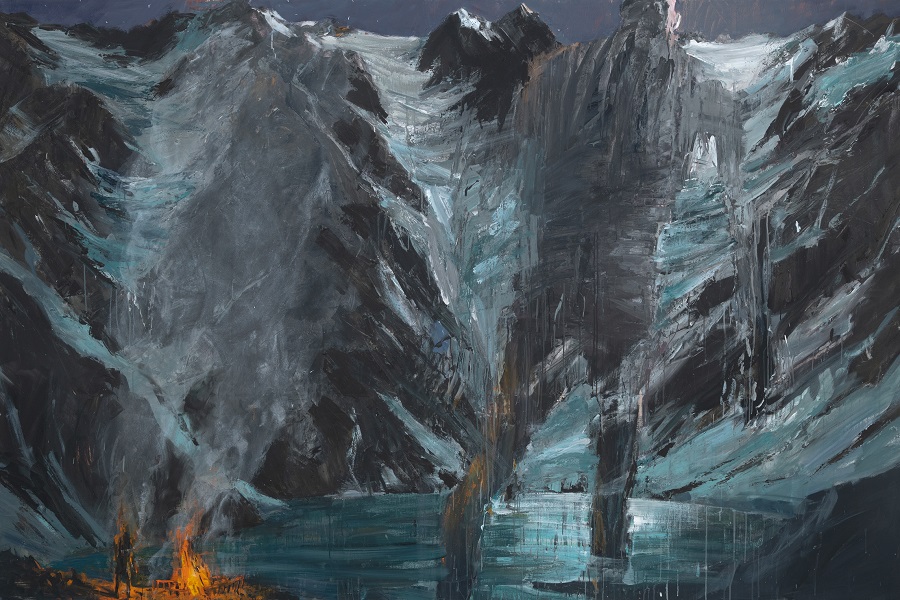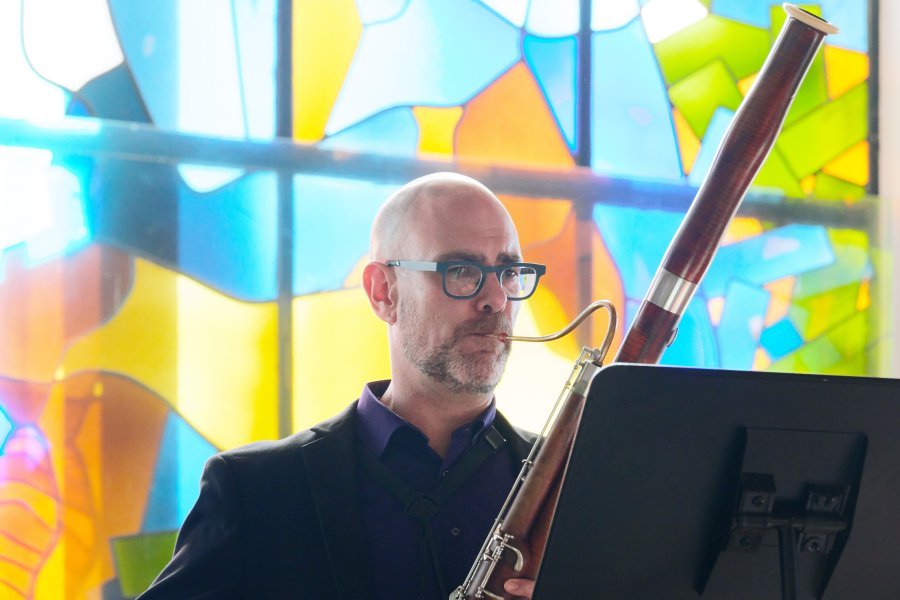As always, the appearance of zombie mascot Eddie (actually a bloke on stilts in a suit) is more pantomime-daft than actually menacing, but his laser-gun shootout with Dickinson in Heaven Can Wait is the kind of moment the kids in attendance will tell their kids about. Apocalypse permitting.
Iron Maiden return to Rod Laver Arena tonight, Saturday September 7.
Reviewed by Michael Dwyer
THEATRE
Mother ★★★★
Arts Centre Melbourne, until September 21
The poor and the marginalised have spurred Daniel Keene’s dramatic imagination since at least the days of the critically acclaimed Keene/Taylor Theatre Project (1997-2002), which began, famously, with short plays staged inside the Brotherhood of St Laurence furniture warehouse in Fitzroy.
Noni Hazlehurst in a scene from Mother. Credit: Brett Boardman
Written for Noni Hazlehurst, his haunting monodrama Mother returns to the poorest of the poor. It gives voice to an ageing homeless woman, Christie, as she wanders the laneways and watering-holes and liminal places of a bygone inner Melbourne.
Between Keene’s exquisitely crafted writing and Hazlehurst’s staggering performance, Mother is theatre that bores into the conscience. Unlike rough sleepers you might walk past in the street, you won’t be able to look away.
The play is far from misery porn. It’s shot through with black humour that accentuates the harrowing realities of Christie’s life – blighted by grief, mental illness, addiction, and the rejection and contempt of all (her plight is seen as so fearful she attracts even the hatred of little boys).
Keene is also unabashedly a philosopher of the stage. I feel a bit silly saying there’s a negative theology to his work. The down-and-out characters he creates do often have an existential and agnostic bent, like Samuel Beckett’s, though given what Christie has to say about Jesus, she’d doubtless think a phrase as fancy as “negative theology” was the study of what an absolute bastard God can be.

Noni Hazlehurst invests the character with the fundamental dignity of the dispossessed.Credit: Brett Boardman
Yet it’s true. Much in Christie’s life has been smothered by the stigma and humiliation of poverty, but she has learnt to snatch blessings where she can.
In one poignant scene, she washes herself in a font of holy water at a church when no one is looking, and there’s unexpected wisdom in the “next to nothing” she admits to knowing … lessons in death, in pain, in loneliness from which she can’t afford to distract herself.
Hazlehurst doesn’t just transform into an utterly convincing homeless alcoholic, she invests the character with the fundamental dignity of the dispossessed in a way that reminds you forcefully of the call to ethical action the most vulnerable inspire in every major world religion, from the practice of zakat (almsgiving) in Islam to the Beatitudes in Christianity.
Loading
Blessed are the poor, in spirit and otherwise … and if the design of this production is undistinguished, Matt Scholten’s direction gets such a mesmerising performance from Hazlehurst, such a sharp sense of our complicity in human suffering, that it scarcely matters.
Reviewed by Cameron Woodhead
The Booklist is a weekly newsletter for book lovers from books editor Jason Steger. Get it every Friday.





